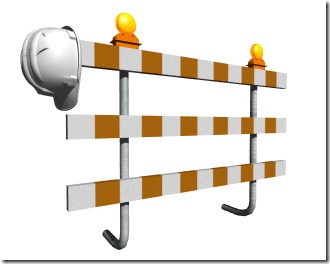Caution: Don’t Assume All References Will Be Good. Surprising Poll.
I was recently facilitating our, You’re NOT The Person I Hired, workshop with CEOs and key executives. As is often the case the subject of reference checking came up. Most in the audience tended to agree that checking references is a waste of time. After all, candidates only give references they are sure will say positives things about them. Don’t you agree?
Then a CFO sitting in the back raised his hand to disagree. He told the story of a controller he was about to hire near the border in Texas. This was a difficult position to fill as there were a lot of specific requirements. Finally, after an arduous search he found his person. She had all of the qualifications and most importantly he really like her. The final step was to conduct a few reference checks. She handed him of list of 30 references. WOW he thought, this person really has a lot of people willing to vouch for her. So he picked 5 and started calling. The first call was to a former boss. He called and introduced himself and explained he was calling to conduct a reference check on Mary. The line went silent. The pause was so long that he thought they had been disconnected and asked if the reference was still on the line. The reference replied yes and then stated, “Mary gave me as reference? I can’t believe it. We fired her because she stole from us. She did pay us back, but she stole from us.” Now there was silence from him. He didn’t know what to say or how to respond.
This is just one of many examples of what can happen on a reference check and why you should always perform your due diligence.
I know you are thinking, “Well that will never happen to me.” That is what everyone thinks or they wouldn’t give the reference in the first place. You can blow this off or take the appropriate action to ensure it doesn’t happen to you.
Pre-qualifying your references isn’t asking if they will be a reference for you. It isn’t even asking if they will be a good reference for you. It is asking them specifically what they will say when a reference check is conducted. You know the person conducting the reference check is going to probe for weaknesses, areas for improvement, how you will rank on a scale of 1-10 compared to others, would they rehire you, and other standard questions. Trust but verify what the person is going to say.
I have conducted thousands of reference checks in my 30 year career as an executive recruiter. I have learned that more often than not someone will give me a reference they expect to be positive and it turns negative. It is for this reason that I always check references. Like the CFO in this example it has saved me from making some big mistakes. It only takes one bad reference to realize that catching that one person was worth all of the others.
I conducted a poll on LinkedIn in which 54% replied that they have had people give them a negative reference. This goes to show you that even though the person giving the reference expects a positive reference, they often don’t get one.
SOME FREE TOOLS AND RESOURCES
To validate that your job search doesn’t have any loop holes, download our free Job Search Self-Assessment Scorecard to see if your job search is the best it can be. CLICK HERE to download.
Join our LinkedIn Job Search Networking Group. This group has over 5,300 members. It is loaded with great articles, discussions, and resources for you to take advantage of. CLICK HERE to join.
Our audio library has over 50 job search audio lessons for everyone to download. These audio lessons cover just about every topic one will encounter during a job search. If you would like to view some of these lessons they are free. CLICK HERE to see the list.
I welcome all thoughts and comments.
Brad Remillard







